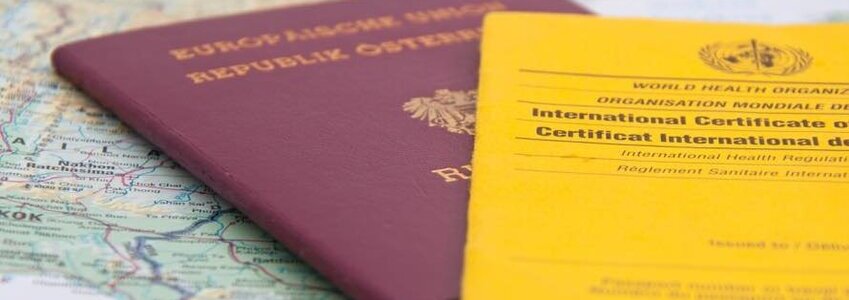
Certain travellers may need mandatory vaccinations to enter Egypt, while other vaccinations are highly recommended.
It’s advisable to see a medical professional around 8 weeks before your trip to make sure that you have the vaccinations recommended for Egypt.
This is an overview of the vaccinations needed for Egypt. Visitors should also make sure they are aware of the documents needed to travel to Egypt and the Egypt tourist visa requirements before setting off.
What vaccinations do I need for Egypt?
There are 3 categories of vaccinations travellers may need to get before visiting Egypt:
- Routine injections all travellers should be up-to-date with regardless of their destination
- Recommended vaccines for all travellers to Egypt
- Recommended vaccines for visiting certain areas of the country and risk activities
Check with your doctor that your routine vaccinations are up-to-date (these vary from country to country) and ask which other shots they advise based on your travel plans.
The Egypt visa form includes some basic questions about your health and it's important to answer them accurately. The application process only takes a few minutes.
Routine vaccinations for Egypt: all travellers should get the following vaccines
- Hepatitis A
Hepatitis A can be spread through contaminated food or water in Egypt, regardless of where you are staying or eating in Egypt.
- Typhoid
Typhoid can also be caught through contaminated food or water. The vaccination is especially recommended if you are staying in rural areas, smaller cities, or with friends or relatives.
Recommended Egypt travel vaccinations: for certain circumstances
- Yellow fever
There is no chance of contracting yellow fever in Egypt. The Egyptian Government requires visitors from countries where yellow fever is prevalent to have a yellow fever vaccination certificate.
There are many countries with risk of yellow fever, across a number of continents, including Africa, Central America, and South America. Check with your doctor for more information.
- Hepatitis B
Hepatitis B is spread sexually and through needles and blood. It's recommended for visitors who are likely to have sex with a new partner, get a tattoo or piercing, or have a medical procedure.
- Rabies
Rabies is found in dogs and other animals in Egypt. Visitors who are likely to come into contact with animals should have a rabies vaccine. This could be travellers who do outdoor activities, children (as they are more likely to play with animals), or people going to Egypt for longer periods (a visa for Egypt allows 30-day stays in the country). Your doctor will be able to advise you if you need it.
- Malaria in Egypt
Malaria is not present in Egypt so there is no need for any type of medication.
Other health risks in Egypt
- Sun exposure
Long sun exposure can lead to sunburn and dehydration. Avoid long periods in the sun, use high-factor sun cream, drink plenty of water.
- High Altitudes
If travelling to high altitude zones, travellers should take time to properly acclimatize. Precautions should also be taken against damaging ultraviolet and cold exposure.
- Schistosomiasis
Schistosomiasis is a parasitic infection transmitted in fresh water. In Egypt, it is common in the Nile Delta area and the Nile Valley. The symptoms are felt 2-4 weeks later and include fever and diarrhoea.
- Tap water
Do not drink tap water unless it has been sterilised. Avoid ice and foods which could have been washed with tap water, such as salads, fresh fruit.



